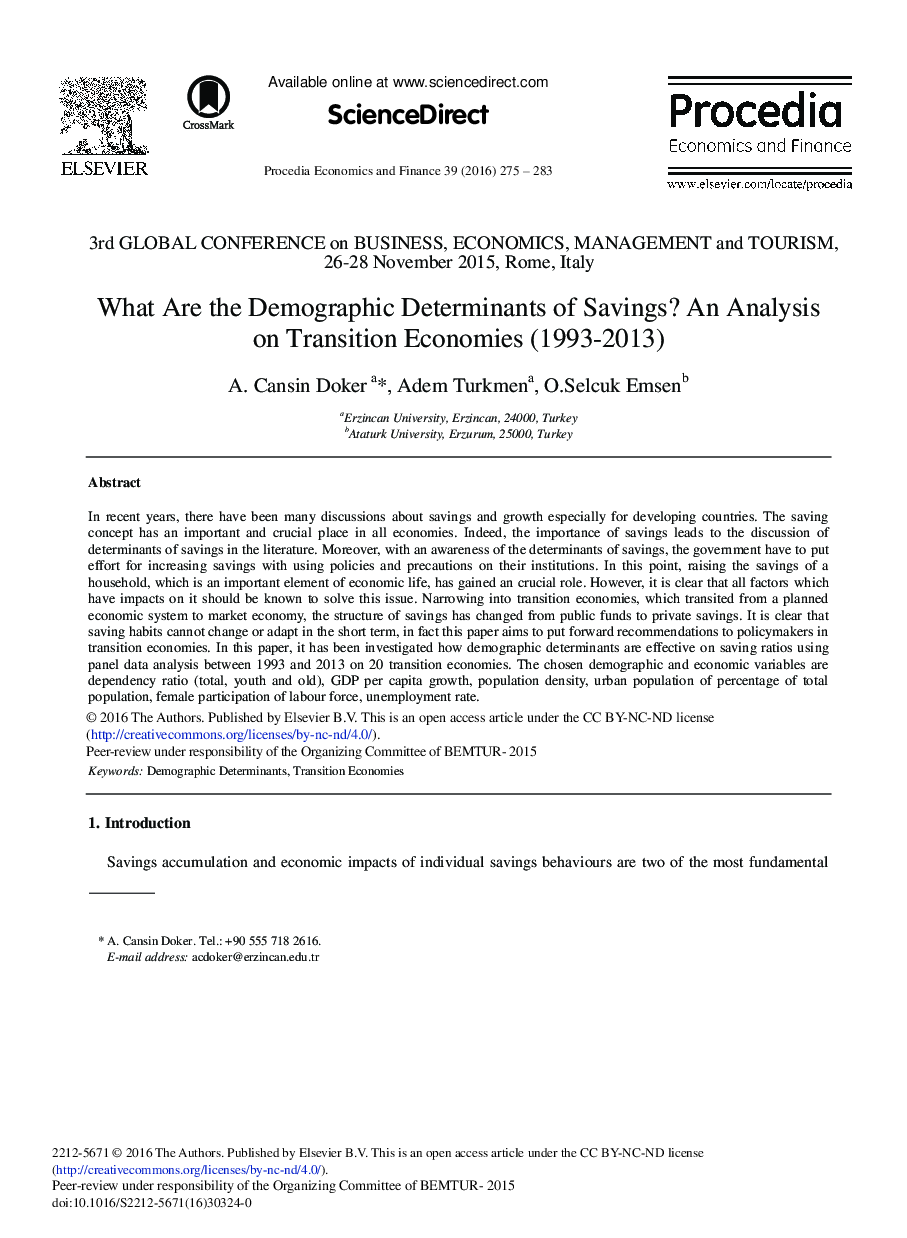| Article ID | Journal | Published Year | Pages | File Type |
|---|---|---|---|---|
| 980519 | Procedia Economics and Finance | 2016 | 9 Pages |
In recent years, there have been many discussions about savings and growth especially for developing countries. The saving concept has an important and crucial place in all economies. Indeed, the importance of savings leads to the discussion of determinants of savings in the literature. Moreover, with an awareness of the determinants of savings, the government have to put effort for increasing savings with using policies and precautions on their institutions. In this point, raising the savings of a household, which is an important element of economic life, has gained an crucial role. However, it is clear that all factors which have impacts on it should be known to solve this issue. Narrowing into transition economies, which transited from a planned economic system to market economy, the structure of savings has changed from public funds to private savings. It is clear that saving habits cannot change or adapt in the short term, in fact this paper aims to put forward recommendations to policymakers in transition economies. In this paper, it has been investigated how demographic determinants are effective on saving ratios using panel data analysis between 1993 and 2013 on 20 transition economies. The chosen demographic and economic variables are dependency ratio (total, youth and old), GDP per capita growth, population density, urban population of percentage of total population, female participation of labour force, unemployment rate.
